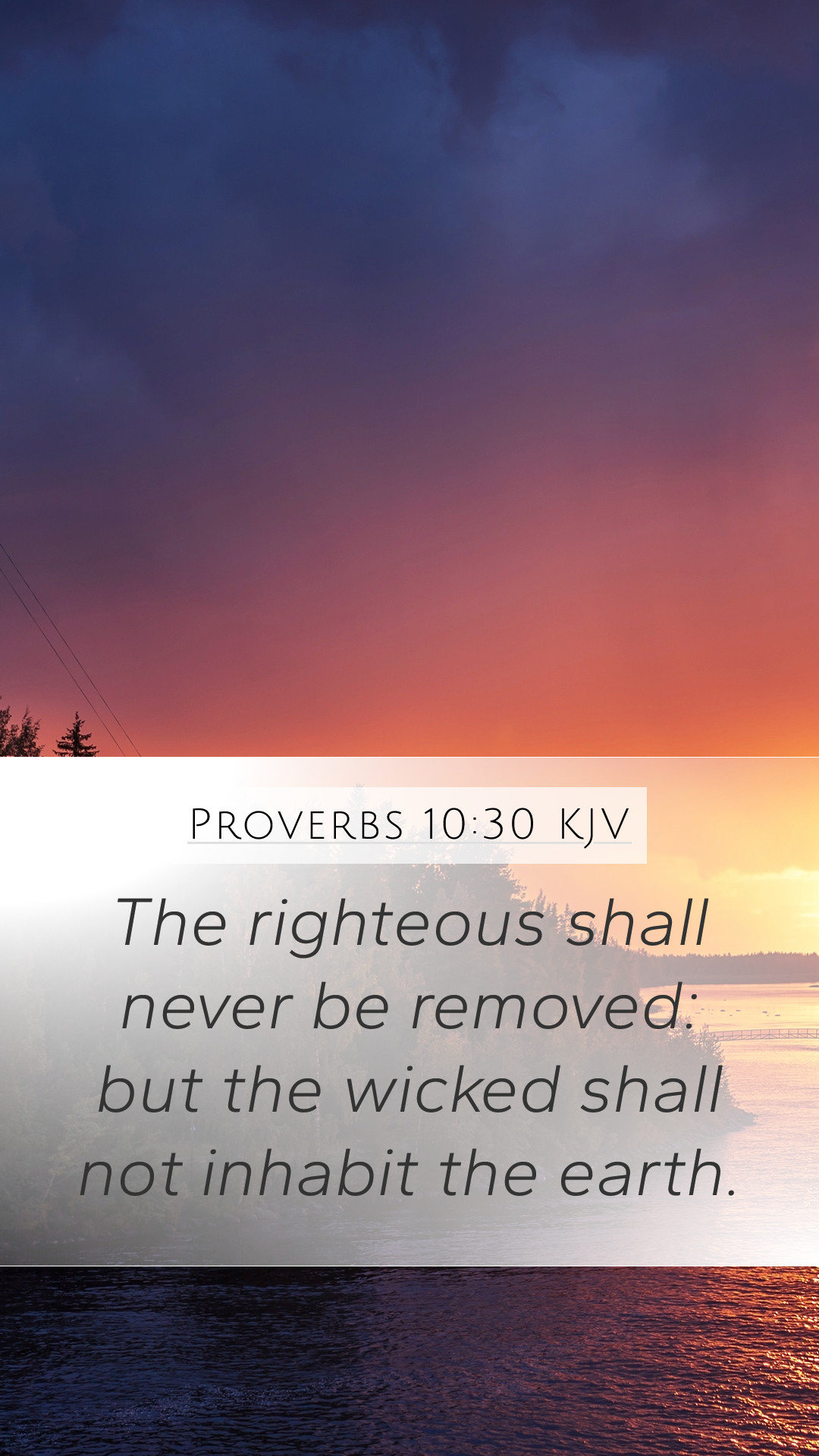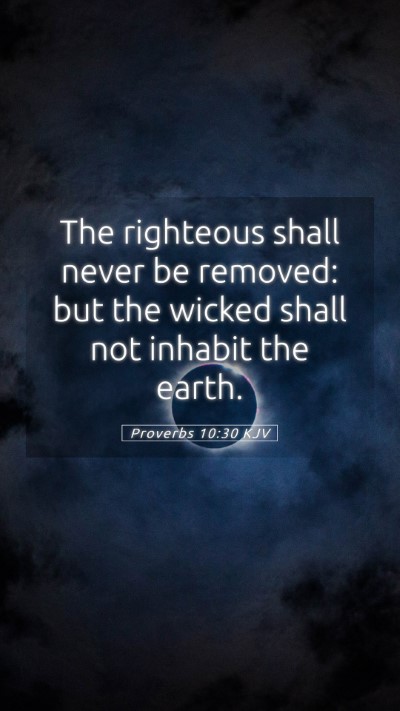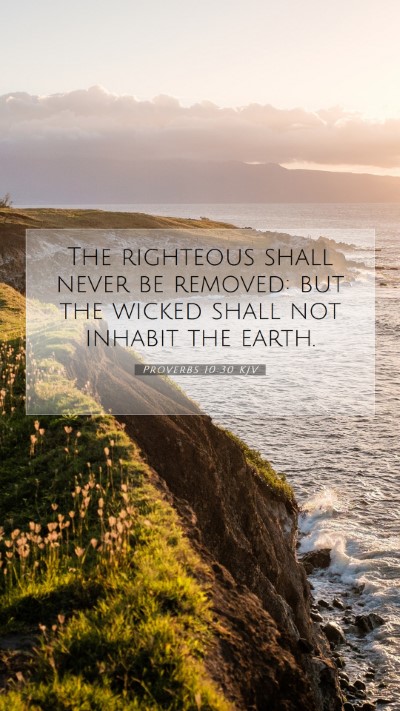Understanding Proverbs 10:30
Proverbs 10:30 states, "The righteous will never be removed: but the wicked shall not inhabit the earth." This verse encapsulates a profound theological truth concerning the fates of the righteous and the wicked. In seeking to define the meaning of this Bible verse, we can draw insights from prominent public domain commentaries, including those by Matthew Henry, Albert Barnes, and Adam Clarke.
Bible Verse Commentary Overview
To fully appreciate Proverbs 10:30, it is essential to consider both the immediate context and the broader theological themes it represents. The verse contrasts the enduring nature of the righteous with the ultimate destruction of the wicked. Here’s a summary of key perspectives from various scholars:
Insights from Matthew Henry
- Righteousness and Stability: Matthew Henry emphasizes that the righteous, those who strive to live according to God's commandments, will have an unshakeable foundation. Their lives are characterized by integrity and faithfulness, which ensures their security in spiritual and often temporal terms.
- The Fate of the Wicked: In contrast, Henry notes that the wicked, who engage in unrighteousness and defiance against divine laws, will find themselves ultimately removed from the earth. Their lives may appear prosperous for a time, but their end is destruction.
Insights from Albert Barnes
- Theological Importance: Albert Barnes points out the theological significance of the verse, highlighting that it serves as a reassurance to believers. It affirms that God's justice will prevail, and He will protect those who are righteous.
- Temporal vs. Eternal Perspective: Barnes elaborates on the temporary nature of the wicked's existence on earth, implying that while their presence may be felt now, their eventual demise is inevitable and part of divine order.
Insights from Adam Clarke
- Interpretation of Righteousness: Adam Clarke interprets "the righteous" as those who are aligned with God's will. He elaborates that their permanence is not merely physical but spiritual, securing them a place in God's eternal kingdom.
- Consequences for Wickedness: Clarke discusses the consequence of being wicked, stressing that it leads to one's ultimate separation from God's blessings. This reinforces the idea of moral accountability before God.
Significance and Application
Understanding this verse provides essential Bible study insights for believers and seekers alike. Here are some key applications one might consider:
- Assurance of Righteousness: Believers can find comfort in knowing that their commitment to living righteously is recognized by God, and that such a life leads to everlasting stability and security.
- Warning Against Wickedness: The verse serves as a stark warning to those living in unrighteousness. It calls for reflection and potential repentance, as a life of wickedness leads to inevitable consequences.
In-Depth Scripture Analysis
This verse invites deeper Biblical exegesis and further study. It can be helpful to explore related passages to enrich understanding:
- Psalms 37:29: "The righteous shall inherit the land, and dwell therein forever." This verse echoes the theme of permanence and security for the righteous.
- Psalms 92:7: "When the wicked spring as the grass, and when all the workers of iniquity do flourish; it is that they shall be destroyed forever." This highlights the transient success of the wicked.
- Isaiah 57:21: "There is no peace, saith my God, to the wicked." This underscores the inner turmoil faced by those who reject God.
Conclusion
In summary, Proverbs 10:30 provides rich ground for contemplation and practical application. Through the combined insights from Matthew Henry, Albert Barnes, and Adam Clarke, one can glean a deeper understanding of the assurances provided to the righteous and the serious consequences faced by the wicked. As you reflect on this verse, consider how it applies to your life and the broader context of spiritual principles in Scripture.


